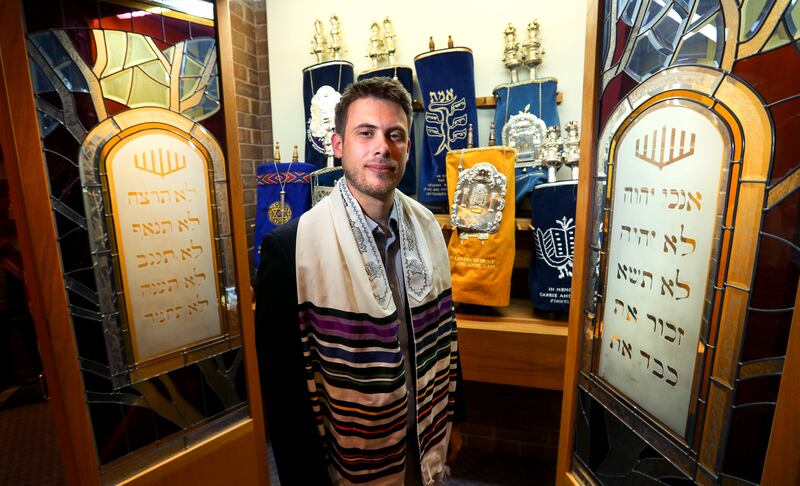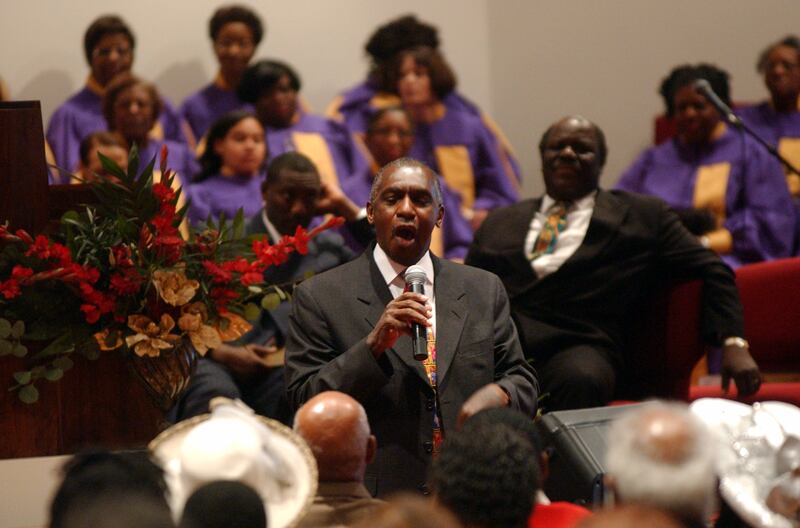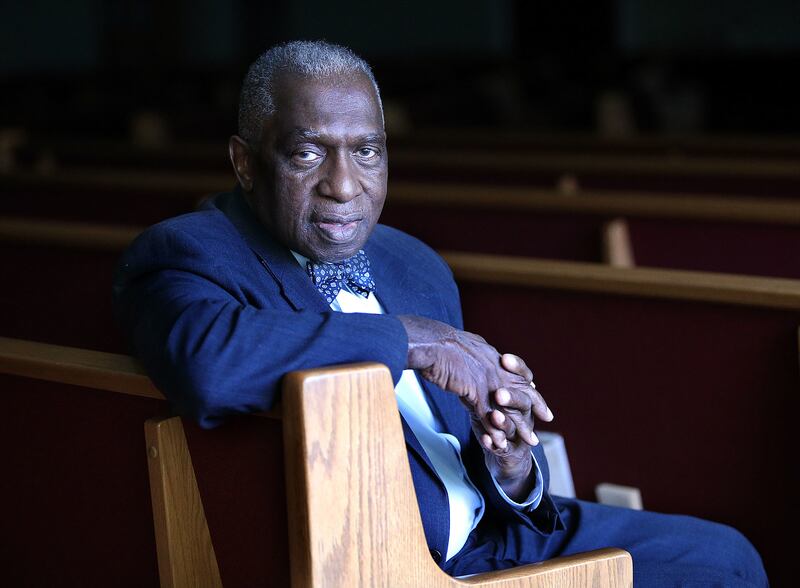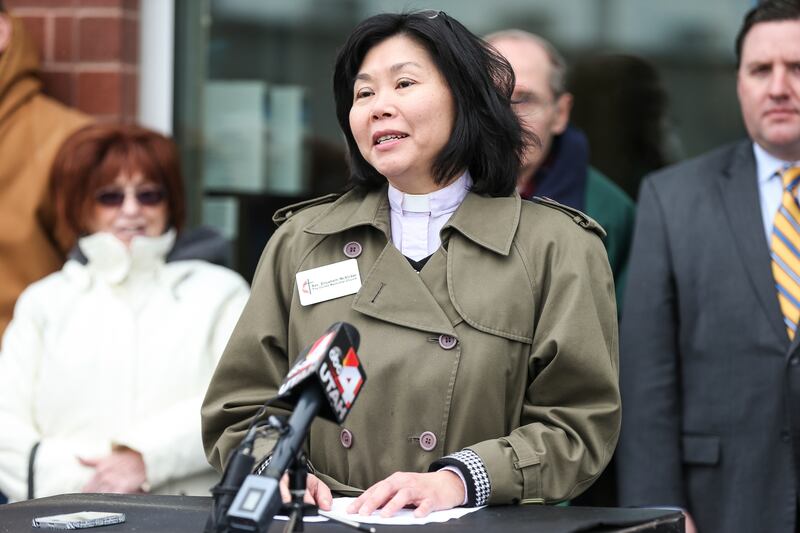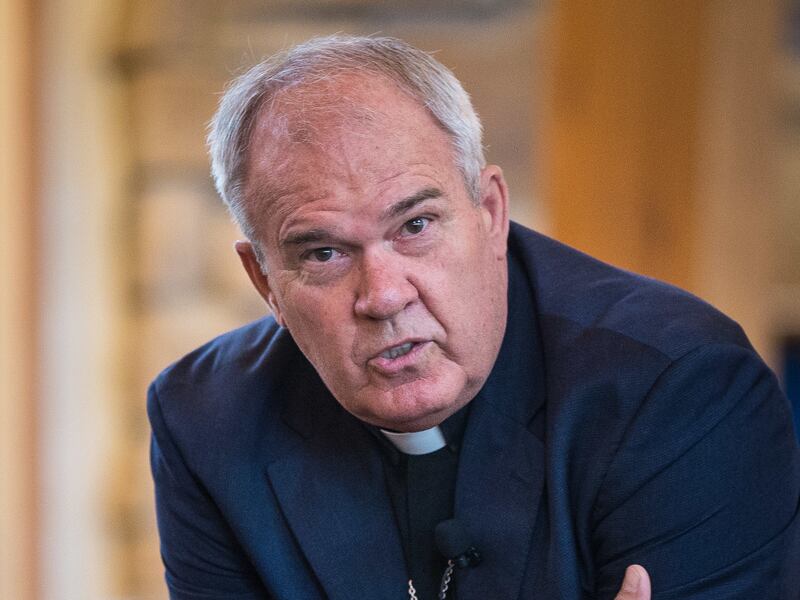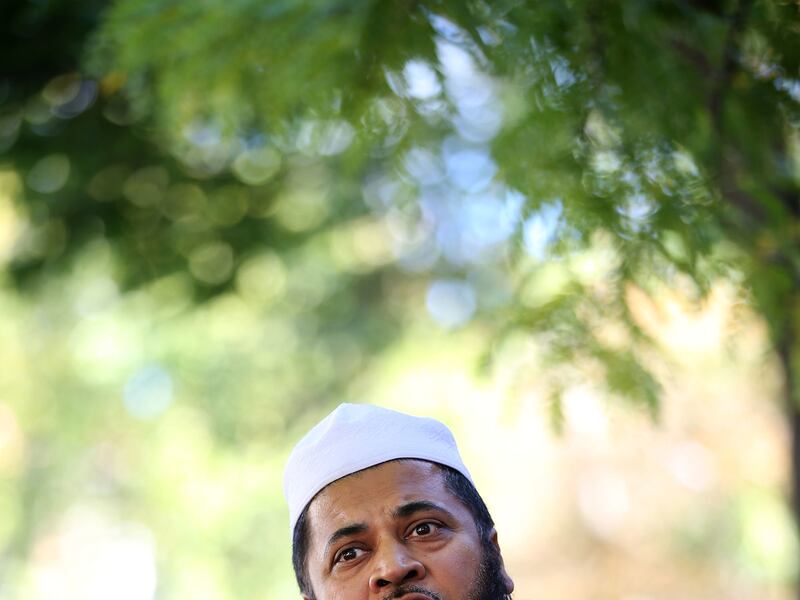SALT LAKE CITY — As he contemplates the approaching Thanksgiving and Hanukkah holidays, Rabbi Samuel L. Spector has more to be grateful for than ever before.
One year ago, Rabbi Spector was in Los Angeles. His synagogue was dealing with budget cuts. Job security wasn't certain and honestly, he was "sad and scared."
Since then, Rabbi Spector has survived a grueling hiring process to be named the new rabbi of Congregation Kol Ami, the largest Jewish congregation in Utah.
"Out of that experience, which I remember as such a dark place, I found my dream job and live in a place where I'm happier than I've ever been," he said. "One year ago I didn't even know Congregation Kol Ami existed and I didn't know a single person. Now I'm surrounded by so many people who are there to support me and have become like family to me."
Rabbi Spector isn't the only faith leader feeling grateful this month. Ahead of Thanksgiving, many of the men and women in charge of Utah congregations are giving thanks for their communities, their work and the opportunity to serve God.
The Deseret News spoke with leaders from a variety of faiths this week about gratitude and Thanksgiving. Here are their thoughts.
Deseret News: Define gratitude — what does it mean to you?
Rev. France A. Davis, pastor of Calvary Baptist Church: Gratitude means to be thankful, to show that you are thankful and to rejoice for what has been done. It means being excited about the blessings you have received and acknowledging that God is the giver of all good gifts.

Rabbi Spector: For me, gratitude is about being able to recognize the blessings that we have in our lives. Maybe we don't have everything we want. However, when we look at where we've come from, we do have things to be thankful for. I always try to think that the important thing in my faith is that tomorrow can be better than today. I also think that if we think long and hard about it, there's always some way in which today might be better than yesterday. The root of the word, "Judaism," means gratitude. And so I think being grateful is an incredibly important part of what it means to be Jewish.
Rev. Steve Klemz, pastor of Zion Evangelical Lutheran Church: Gratitude is that place in my heart that comes alive whenever and wherever I discover anew God's unimaginable gifts of life and love.
Elder Craig C. Christensen, president of the Utah Area of The Church of Jesus Christ of Latter-day Saints: Gratitude is a genuine attitude of appreciation and thankfulness. More than a simple expression we celebrate around Thanksgiving time, gratitude is an eternal principle which strengthens individuals and families during times of abundance as well as times of trial and despair.
Rev. Elizabeth McVicker, pastor of First United Methodist Church and Centenary United Methodist Church: Gratitude is the understanding that the things we have are blessings from someone else and blessings from God.
Deseret News: What are you most grateful for in your ministry?
Rabbi Spector: I'm grateful for so many things. I'm grateful that people welcome me into their stories, and that I get to be a part of people's stories. That's an incredible honor. Every day I get to do what I love, which is really to just be myself. I'm professionally Jewish. It's amazing.
Rev. McVicker: I'm grateful that God is working through me and in front of me and behind me. I'm grateful that I don't have to rely on my own power to work toward the vision that I have for the world, that as I work towards God's vision I can rely on God's power as well.
Imam Shuaib Din, leader of the Utah Islamic Center: I am most grateful for having a satisfying profession, and I'm not speaking in terms of wages or salary. A lot of people have good incomes from their jobs but, according to surveys, they're not satisfied with their work. I am grateful for the benefit I'm providing people. As I often say, I'm busy, but good busy.

Rev. Davis: I am most grateful to be able to be an instrument to help others reach their fullest potential — the elderly to have housing, the young to have scholarships for school, and everybody to have their spiritual needs met.
Elder Christensen: I am most grateful for life and teachings of the Savior Jesus Christ, for the blessings of His Atoning sacrifice. Sharing this message with God's children is both rewarding and reassuring.
Rev. Klemz: The people of Zion Evangelical Lutheran Church. Quietly, almost unwittingly, over time, God works in and through them with the gifts of forgiveness and faithfulness, generosity and graciousness, hope and hospitality.
Deseret News: Why does gratitude matter?
Elder Christensen: Having a spirit of gratitude helps us find peace and tranquility in a world seemingly filled with chaos and challenges. It seems that disasters, both natural and man-made, are ever-present and it’s important to continually remember that God loves us and has a plan for our lives, to be thankful for the blessings we enjoy both great and small. The Book of Mormon teaches that we should “live in thanksgiving daily, for the many mercies and blessings which (God) doth bestow upon (us)" (Alma 34:38). Living in thanksgiving daily requires that we recognize God’s hand in our lives, and express our gratitude to Him in both word and deed. Notwithstanding our personal circumstances, we are much happier when we choose to be grateful and express that gratitude in ministering to and serving others.

Rabbi Spector: Without gratitude, we would never be able to see the progress we make. I think gratitude allows us to live happy lives. Otherwise, we would just be looking at what we don't have and what we're aspiring towards, which is really important. But at the same time, if we can't stop and say, look what I have achieved, look what I do have in my life, life wouldn't be enjoyable.
Imam Shuaib: We often take for granted the biggest blessings of God in this world, which are having enough provisions to provide for your family and having safety and peace. There are parts of the world, countries in the world, where you cannot step out of your house knowing whether you'll return safe or not.
Rev. Klemz: Gratitude moves us from scarcity (there is not enough) to generosity (God provides enough for all). From my faith tradition, Jesus performs an act of gratitude, taking and blessing bread so that 5,000 people are fed with food left over. Imagine life lived in gratitude. Rather than scarcity and fear, immigrants and refugees would be welcomed. Rather than living against 'the other,' all people would be cherished and received as God’s beloved children.
Rev. McVicker: Gratitude helps us to see a bigger picture beyond ourselves. It helps us see that the things we have come from more than just the work of our own hands. There is a spiritual power at work in the world that brings us blessings. We're called to join with that power and bring blessings to others.
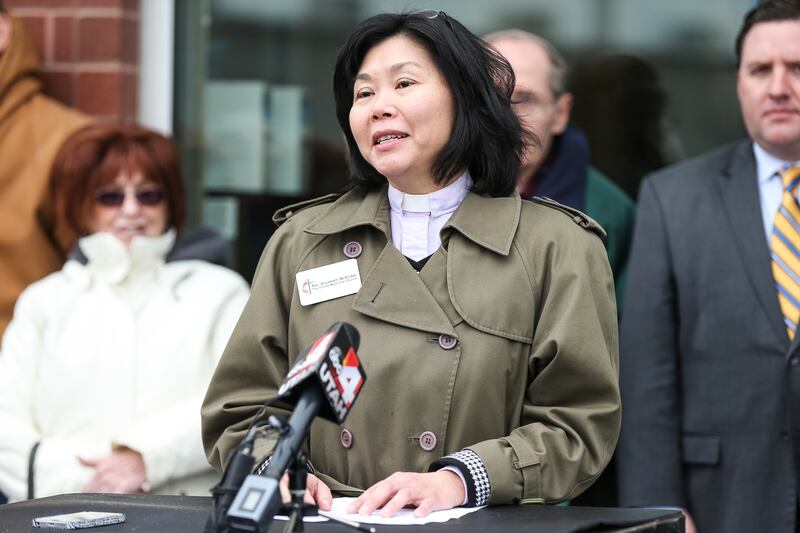
Deseret News: What other thoughts or experiences do you want to share about gratitude?
Rev. Davis: We should all be grateful because our ability is limited but God is able to deliver us in every situation. Even our extreme needs are met by the grace of God. To be grateful is the minimal response for what we receive.
Rev. McVicker: I think Thanksgiving is an opportunity to think of our nation as a blessing and be grateful for the way of life we have as Americans.
Rabbi Spector: For the Jewish people in a few weeks, we're not only going to celebrate Thanksgiving but we're also going to celebrate Hanukkah. Hanukkah is a reminder to us of a time when everything seemed hopeless but in which we found hope, and where people tried to take away our religious freedoms and we were able to maintain them. Hanukkah takes place at the darkest time of the year. Despite that, we light candles and all of the sudden a tiny light will illuminate an entire room. Being aware of what we're grateful for allows us to, even in our darkest moments, create a little light for ourselves and then use that light to illuminate the world.
Imam Shuaib: Muslims pray five times a day. We put our forehead on the ground five times a day as a way to show our gratitude to our maker, for all that he has given to us and done for us.


